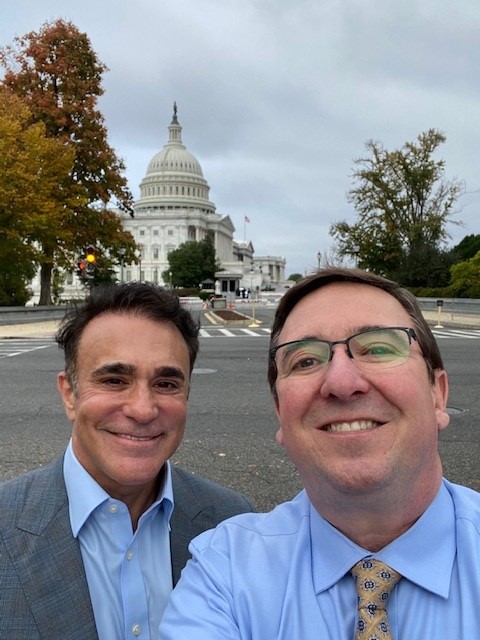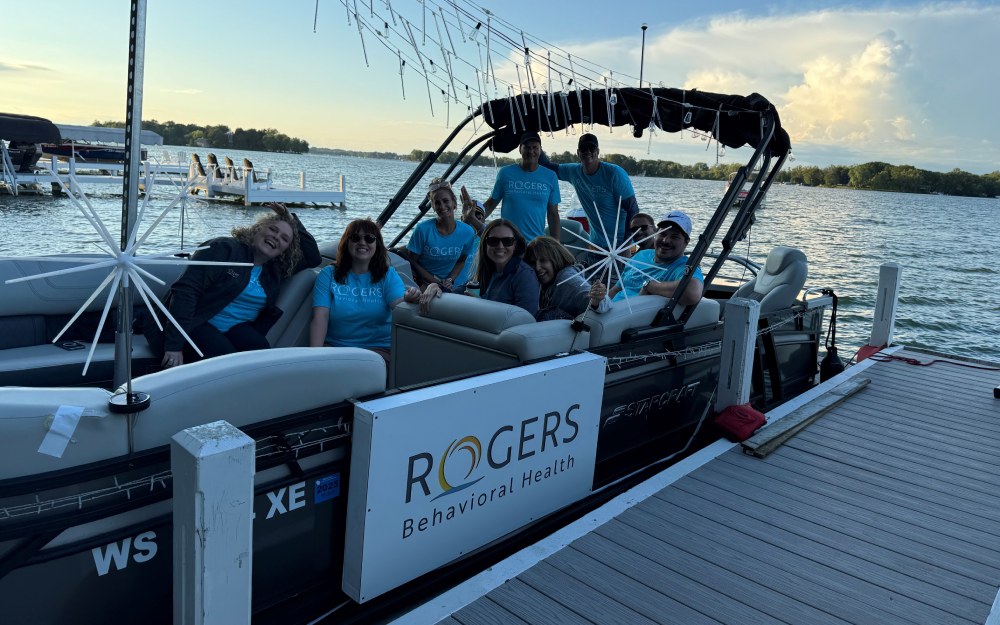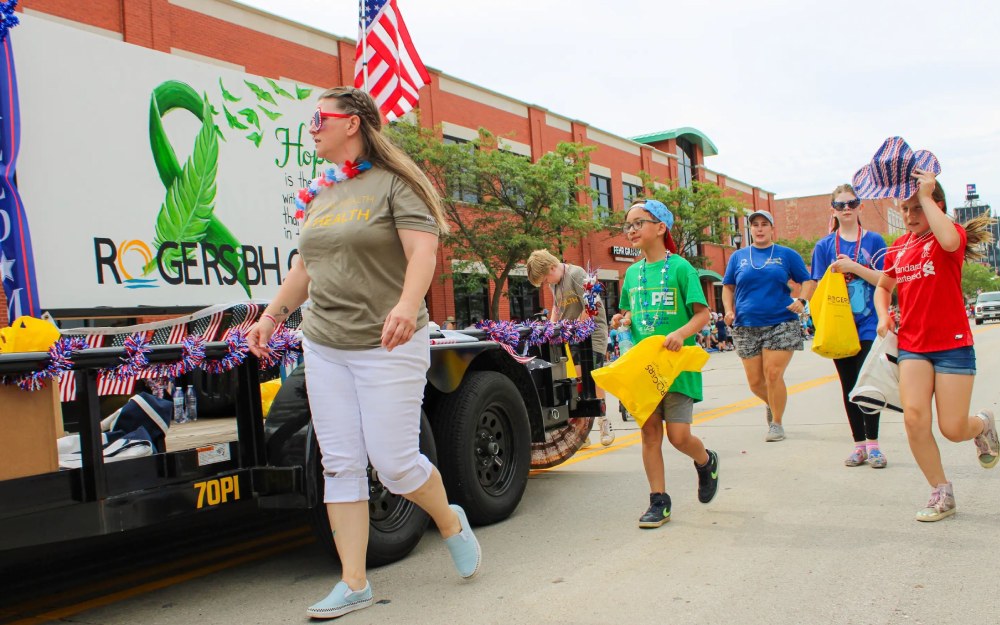
Advocacy: Finding your voice
12/13/22 03:15:pm~ By Tom Starling, executive director, community strategic partnerships

As part of our efforts, Rogers leaders recently visited Washington, DC, to make introductions and share our vision with various national stakeholders.
John Boyd, PsyD, president and CEO, Jerry Halverson, MD, senior physician executive, and I met with representatives from American Psychiatric Association (APA), Mental Health America (MHA), National Alliance on Mental Illness (NAMI), Anxiety and Depression Association of America (ADAA), Human Rights Campaign, Meta, and U.S. Rep. Scott Fitzgerald’s office.
See highlights of the meetings:
- We began productive discussions with APA leadership about future partnerships and appreciate Dr. Halverson’s longstanding relationship with the national organization, which allowed access to its leadership. Conversations will continue in 2023.
- MHA is interested in Rogers’ spirituality component and chaplain training.
- Dr. Boyd’s NAMI connections led us to brainstorm about Rogers’ participation in the organization’s “Reimagine Crisis Response” campaign.
- John also met with ADAA’s new senior director of business development about 2023 initiatives, which include a Rogers Research Center representative potentially serving on the ADAA editorial board.
- The Human Rights Campaign recommended that Rogers raise our score on the Healthcare Equality Index Survey, so that LGBTQ communities know that Rogers provides supportive care and treatment for their population.
- Meta was interested in learning about how Rogers could facilitate their employees’ workplace wellness.
- Congressman Fitzgerald’s office was amazed at the “behavioral health gems” in his district, which include our outpatient clinic in Nashville.
Earlier this month, Rogers also worked to increase Tennessee advocacy engagement by establishing a meeting with Sean LeNoue, MD, medical director of Outpatient Services, and the following stakeholders: former U.S. Senator Bill Frist; Marie Williams, commissioner of the Tennessee Department of Mental Health and Substance Abuse Services; Ken Moore, mayor of Franklin, Tennessee; Scott West, MD, a Nashville psychiatrist and leader in Transcranial Magnetic Stimulation; Katina Beard, a charitable clinic CEO; Amanda Bracht, a Medicaid-only clinic leader; Mary Salter, an addiction recovery leader; Kyla Krengel, a behavioral health director for Nashville Public Schools; and Jared Meggs, founder and CEO of ProsodyHealth.
We discussed behavioral health innovations and challenges, explored the impact of behavioral health on the corporate sector, and shared what both the public and private sectors are doing to reduce stigma and promote behavioral health.
Becoming an advocate
There are many ways you can establish and grow your advocacy voice.

Next, look to your local NAMI or MHA affiliate, many of which have an advocacy committee. As a word of caution, remember not to lobby or attend election campaigns on behalf of Rogers, which could put our nonprofit status at risk.
Want to learn more? Please reach out to me at 262-933-6906 or thomas.starling@rogersbh.org.





